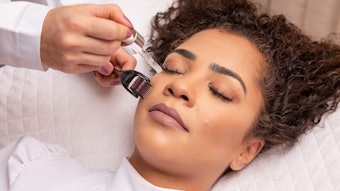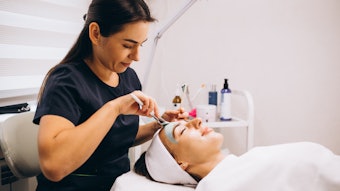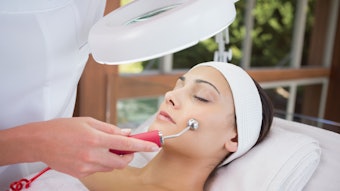
As the medspa industry continues its ascension into the health and wellness mainstream, some owners with established and successful business models are looking to expand their reach through franchising opportunities. For prospective first-time owners, this can mean being confronted with a fork-in-the-road decision before entering the space: franchise or independent.
Loaded with pros, cons, nuance and context, deciding between buying into a franchise or building a new, independent brand from scratch is arguably the most consequential decision an aspiring medspa owner will ever make.
To be clear, the medspa industry is still in the extreme early days of franchising opportunities. According to the 2024 AmSpa State of the Industry Report1, just 2% of medspas today belong to a franchise. But make no mistake: that number is on the rise and likely to accelerate rapidly. The industry report also projects the number of medspas across the U.S. approaching 13,000 by 2026.
A growing percentage means prospective owners will have a decision to make, so let’s dive into the four biggest questions they should ask before making it.
How passionate are you about brand building?
The first question I ask those torn between franchising or going the independent route is how strong is your passion for brand building? For some business owners, building a brand in their image is a central part of the entrepreneurial experience. It inspires them to become an entrepreneur in the first place.
For others, the satisfaction and sense of accomplishment of building a brand from the ground up doesn’t carry as much weight. Many want to run their own business and experience the entrepreneurial journey without having the opportunity to build a brand and shape it to their liking.
If you’re excited to own your own business but aren’t passionate about building a new brand, franchising could be an appealing option. Note that we’re not asking – yet – if building a brand from scratch is best for your market or would be bottom line. We’re asking if it’s right for you, the person who has to live the experience. That’s also the case with our next question.
How much operational control do you need to feel comfortable?
Yet another critical question — and another you can’t answer with a calculator or plan out on a spreadsheet. Do you want total operational control over every aspect of your business? Do you value having the flexibility to experiment and change things on the fly? Or are you the type of person who likes to have (and stick to) a clearly defined playbook? If you’re the former, you may find franchising an imperfect fit. If you’re the latter, it might be exactly what you’re looking for.
Now, that’s not to suggest that being a franchisee is a suffocating experience or that you have no say in running the business (franchisees will tell you just the opposite if you ask them). But you will have to work within certain operational guidelines that may limit your ability to experiment with things like price changes and creative promotional packages, and those kinds of limitations may in turn limit the level of enjoyment or fulfillment you get as an owner. Or they may do just the opposite; they may give you the guidelines and guardrails you crave, especially if you’re coming into the game with plenty of prowess as a medical esthetician but limited business experience.  Courtesy of Skya Jones
Courtesy of Skya Jones
How strong is your risk appetite?
The unfortunate reality of small businesses is that many fail. According to the latest U.S. Bureau of Labor Statistics2, 20.4% of businesses fail within their first year. That percentage increases to 49.4% and 65.3% respectively by years five and ten. Becoming a business owner involves a lot of risk.
Can franchising eliminate that risk? Of course not. But since you’re replicating an established and successful brand and business model (don’t get involved otherwise), you’re certainly mitigating at least some of it when you buy into a franchise. So it’s really about you — the recurring theme here, if you haven’t noticed — and your risk appetite. If you have a passion for medical aesthetics, but wouldn’t exactly call yourself a risk taker, franchising may provide the more comfortable path.
What are the nuances of your market?
Ah, finally, a business-specific consideration. Now that you’ve gone through an honest self-assessment about how you match up personally, it’s time to think through the particulars of your local market and see if they steer you in a particular direction.
Part of it is your planned locale. If you’re in the type of city or town with a strong reputation for supporting locally-owned businesses, you might lean independent. If you’re in a more transient area or a city that’s usually teeming with people in town on business, then you might lean toward franchising so you can capture prospective clients looking to get an appointment at “their” medspa while in town.
Part of it is your target clientele. If yours is a locally influenced clientele that likes to visit and support the new business everyone in town is talking about, there’s a strong case for going independent. If yours is a very “online” clientele, the sort that seeks out names and brands they’ve heard of on TikTok or Instagram, there’s probably a strong case for going franchise.
Again, there’s no magic formula for you to plug into a spreadsheet here. It’s about researching and understanding the nuances of your city and prospective clientele.
The right path for you
If it hasn’t been made abundantly clear yet, the right path for you and your business are mutually exclusive concepts that can and often do find themselves at tension. The choice that makes the most sense for your marketplace and prospective customer base may not always be the one that makes the most sense for you. Understanding and navigating that tension is the most important part of the process; nothing matters more than being truthful with yourself.
References
1 https://americanmedspa.org/resources/med-spa-statistics
2 https://www.bls.gov/
About the Author
Skya Jones is a Medspa Education Manager and in-house aesthetics expert for Boulevard. She works directly with the company’s staff and medspa customers to help design memorable client experiences. Skya has more than seven years of experience in the beauty industry with a focus on medical aesthetics, as well as more than five years of experience in medspa leadership and management. Before joining Boulevard, Skya was a department lead for Bobbi Bullock Medical Esthetics. A certified nurse assistant, her career spans both clinical and business operations, and includes stints as a manager at VitaNovu and a beauty advisor for Kohl’s. Skya’s go-to self-care routine is a relaxing facial or massage followed by meditation or yoga.











